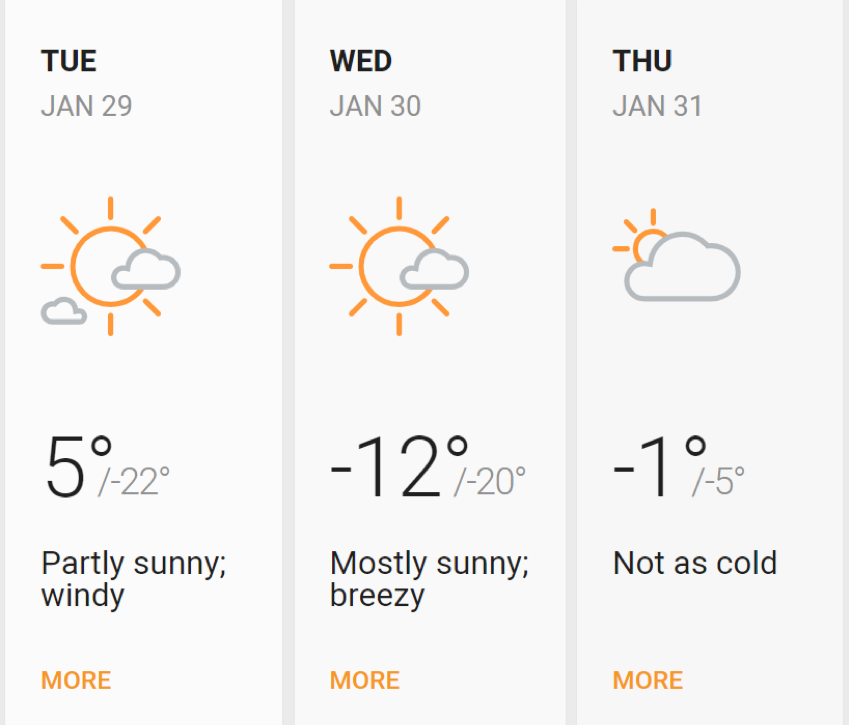On Wednesday, residents of Los Angeles will be enjoying 70-degree weather, wearing shorts and probably spending time at the beach. A chilly 35-degree day will bring snow showers to Anchorage, Alaska. In Siberia, residents will be bundled up for a high of 9℉ and a low of 2℉.
And in Evanston, IL, with a blanket of snow on the ground, temperatures will dip to as low as -20.

This doesn’t even begin to account for the expected wind chill, a frigid 55 degrees below zero. You know it’s cold when the temperature in Celsius (-48℃) is higher than the temperature in Fahrenheit. If all of this isn’t convincing, Morty even cancelled classes.
Even if you’re one of those people who was born and raised in the Midwest, claims to be immune to cold and goes swimming in the snow for fun, you might want to think twice about stepping outside until Thursday.
So, what actually happens to your body in subzero temperatures?
When you go out in the cold, your body does what it can to protect your major organs like your heart, kidney and lungs. To do this, some blood flow is diverted from your nose, ears, fingertips and toes, which is why these parts of your body feel cold the fastest. And it’s a good thing we’re not having class – if your body temperature drops, it can slow your metabolism and actually cause mental confusion, so it’s best to avoid having to make decisions in the cold.
With a wind chill of -50℉, you can get frostbite in just 5 minutes outside. This means wherever you live on campus, your Norbucks run is going to have to wait. If you’re getting a prickly feeling or numbness on your skin, these are early symptoms of frostbite, and you need to get inside immediately. Rubbing affected skin is actually not a good idea, as it can increase the damage.
In addition to the risk of frostbite, the potential for hypothermia is another worry, especially if you’re planning on walking from Chapin to Lincoln for some insane reason on Wednesday. Hypothermia becomes a medical emergency once body temperature drops from a normal 98.6 to below 95℉. You will likely have symptoms of frostbite as well by the time hypothermia becomes a serious possibility, and with the mental fogginess of hypothermia, things can get much worse. Confusion, lethargy, memory loss and other symptoms can cause deadly results if you're in the freezing cold.
And as tempted as you may be to ~celebrate~ the cancellation of classes, do not drink alcohol before going outside – this causes your body to lose heat faster than it would otherwise, and it is one of the CDC’s risk factors for the onset of hypothermia.
Bottom line – these days are going to be cold, that is, until we hit Friday with a toasty high of 17℉. If you need one more excuse to stay inside, hear this: It’s more dangerous to exercise in cold weather, even though athletes are in great shape. Activity pumps blood flow around your whole body, taking it away from your heart, lungs and kidneys. So this week, take some time to relax indoors, curl up with a hot drink and Netflix and enjoy not having to go to class.